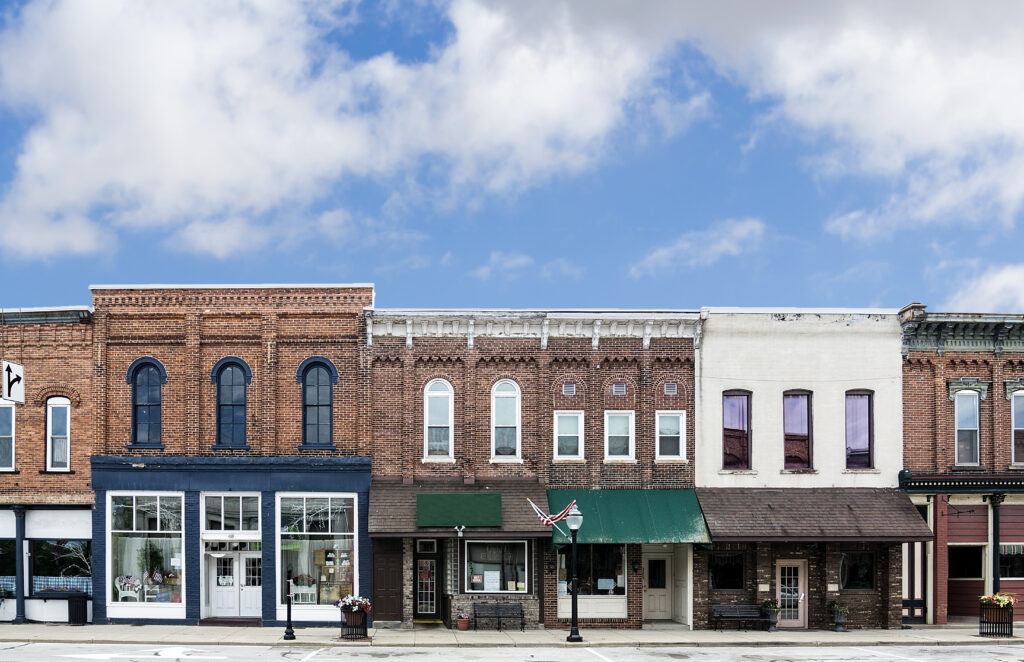The Social Capital Project makes specific recommendations on how the charitable endeavors and incentives can help repair our fraying civil society.
I’ve found that the Social Capital Project, a think tank affiliated with the Republicans associated with Joint Economic Committee, has done a very good job at showing the problems with our fraying civil society and what ought to be done to repair the damage. The project has issued all sorts of publications, including a reading list of good books and articles about civil society. I think the group does very good work, and I’ve regularly written about their reports, most recently here.
Their most recent report, The Space Between, is a semi-sequel to the committee’s earlier study The Wealth of Relations. Writers Wells King, Vijay Menon, and Robert Bellafiore focus on how government has weakened civil society and steps the state can do to provide opportunities for social entrepreneurs to flourish and civil society to be restored.
The authors begin by noting two kinds of social capital. “Bridging social capital” is what happens when you meet someone in a club that you would otherwise never know if it weren’t for your common interest in the club’s activity. “Bonding social capital” is what happens when the organization you belong to—a church, a fraternal order, a youth organization—has as its premise making you morally better than you would be if you hadn’t joined the club.
The authors cite research by Harvard economist Raj Chetty and his associates that show that low-income areas with a robust network of clubs and organizations provide more opportunities for the poor to advance than do comparable areas where these clubs have frayed. For example, in 2015 I noted the centennial of the What Good Are We? Club, an organization of successful African-American men who mentor the young and show them the opportunities that result from hard work and diligence.
These clubs flourished before the Great Depression, in part because some of the services the clubs provided—life insurance, precursors of health insurance—were taken over by the state. They cite a 2006 paper by Jonathan Gruber and Daniel M. Hungerman that calculated that charitable spending fell by 30 percent during the Great Depression as the expanding welfare state nationalized some of the services charities used to offer.
But as the welfare state expanded, trust in government fell. The Pew Research Center, in a 2019 study, says the percentage of Americans who agreed that they “trust the government in Washington most or all of the time” fell from 77 percent in 1964 to 19 percent in 2018.
There have also been declines in two other pertinent indicators. The Social Capital Project used data from the General Social Survey to calculate that membership in 16 different types of organizations fell between 1974-2004, with the declines at their sharpest among fraternal organizations (down 52 percent), veterans’ groups (down 42 percent), and labor unions (down 41 percent). The authors report that the less educated you are, the less likely you are to be part of a club or organization.
There has also been a selective decline in our likelihood to trust strangers. The General Social Survey reports that the percentage of college-educated Americans who say they trust strangers has remained between 50 and 55 percent since around 1990, but that the percentage of Americans with less than a college education who say they trust strangers has fallen by about 20 percentage points in this periods. Hispanics and Latinos are less likely to trust strangers than white people.
The authors offer several solutions for the problem of replenishing social capital, including the notions of subsidiarity and making sure that new government programs don’t crowd out existing charitable programs. They also support making the charitable deduction available to all filers rather than only the ones who itemize deductions.
Here are some ideas that they propose that are new to me.
A clearinghouse. They suggest that someone create a database of programs run by private organizations that receive government grants and contracts so that evaluations of these programs are easily obtainable by people who want to see if the grants were effective or ineffective. They suggest that the What Works Clearinghouse, run by the Department of Education’s Institute of Education Sciences, would be a good model for this database.
Embedding localism. “Wherever practical, local institutions and populations should be used to administer health, education, and welfare programs.” The authors suggest that one way to make sure that government spending devolves to the lowest possible level is for a “ZIP Code test,” so that state-funded services in a particular ZIP Code are administered by nonprofits based in that ZIP code.
A “compassion credit.” Former governor John Kasich and former senator Dan Coats have proposed a new tax credit for people who “open their homes to help those in need, including battered women, abused mothers, the homeless, hospice patients, and unmarried pregnant women.” To protect the homeowners wishing to participate in the credit, people referred to these homes have to have approval from social service agencies.
Depleted social capital is a continuing problem, and we need more careful analysis on what should be done to strengthen civil society. The Social Capital Project continues to offer first-class analysis on the problems civil society continues to face.






